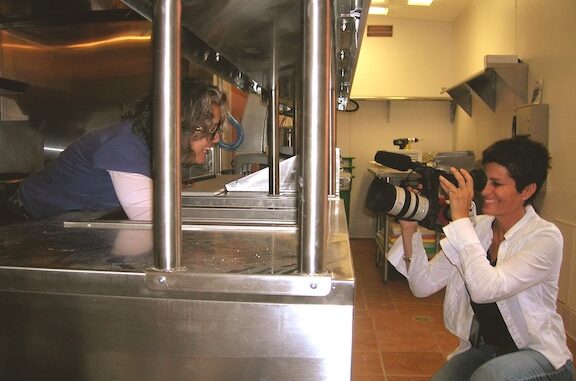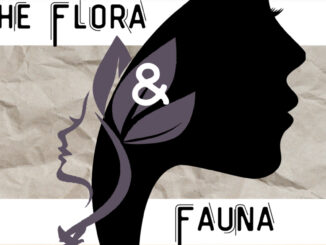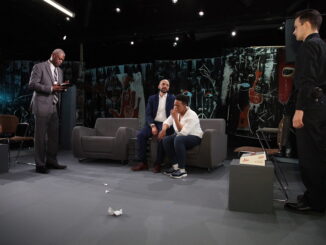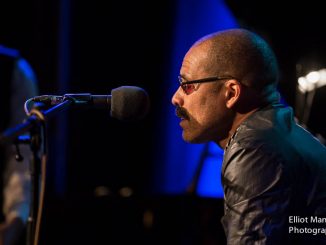
Director Liz Lachman generously agreed to a Q & A with Splash Magazine Worldwide journalist Misty Schwartz. Read below to learn what they discussed.

Can you share a bit about your background and what initially sparked your interest in filmmaking?
My journey into filmmaking unfolded as an evolution rather than a sudden revolution, marked by a gradual awakening. Beginning as a musician, I earned recognition, including an Emmy Award, for composing music for television. My experience as a singer-songwriter and a music editor, collaborating with composers to shape the auditory landscape of films and TV projects, played a pivotal role. As I ventured into screenplay writing, the positive response helped to pave the way for a natural progression into directing, allowing me to bring my written stories to life.
Were there any particular filmmakers or films that influenced you during your formative years?
There were so many early influences, but I will say this: when I saw the film by Spike Jonze, “Being John Malkovich”, my head exploded. It really signified to me that there were many fewer rules in filmmaking than I thought. And he broke the mold! It really freed up my creativity!
Did you undergo formal education in filmmaking, or are you self-taught? How did your education shape your approach to filmmaking?
I did not go to traditional Film school. I think by the time I decided I wanted to be a director, I had already been in so many different parts of the business. So what I did was I supplemented my knowledge with classes, either from Ucla extension or different filmmaking courses that were offered from various places.
Most of what I’ve learned has just helped support the idea that you have to stay true to who you are and tell the stories you want to tell. Of course that’s speaking g from the viewpoint of an independent filmmaker, not a TV director. That’s a whole other animal!

What were your initial experiences like when you first started working in the film industry?
There were so many different facets of filmmaking! Mostly I just tried to be a fly on the wall and learn from mentors.
Can you share a memorable story from your early career that had a significant impact on you?
A pivotal moment occurred when, as a music editor, a producer suggested using normal theme music during a character’s on-screen breakdown. This decision created a powerful emotional impact, showcasing the potency of letting the audience interpret the emotions rather than leading them explicitly.
Are there recurring themes or subjects that you find yourself drawn to in your work?
A recurring theme in my work is the concept of “unmasking,” whether it’s a psychological revelation or exposing the dynamics of group thinking.
How would you describe your artistic style or approach to filmmaking?I always try to approach a story I like by identifying with the theme.

What was your approach to “Susan Feniger’s FORKED”:
Because this was a documentary, rather than a narrative, where I wrote the story and had total control over it, to a large degree, I was controlled by where the story led. But I still needed to shape the underlying theme and I wasn’t really sure what that was for a long long time. It wasn’t until very late in the game where susan was talking about her relationship with Mary Sue Milliken, her business partner of many years, that I realize that this really was about a marriage of sorts, and how one needs to sometimes have space to grow so that they can come back with fresh eyes to the relationship.
Once I knew that that was my story, then I had to deal with: how can I get my sense of humor into the telling of this story? So I came up with the idea of “chapters” where I could control where the audience would be emotionally while they were watching the story.
How do you approach collaboration with other creatives, such as writers, cinematographers, and actors?
Creatively my approach to working with people is to just discuss everything I know about the story and characters, go back and forth with ideas, to help give them a base where they can then leap off and bring their own creativity to it.
What would you consider as some of the key milestones in your filmmaking career?
Key milestones in my career include the success of my short films, “Getting to Know You” and “Pin-Up,” in various film festivals and finishing my first feature film, Susan Feniger. FORKED.
Are there specific projects that hold a special place in your heart?
My feature script of Pin-Up is a very unusual story about Mother’s Love that I hope will be my first narrative feature. I was hugely excited when It won so many festival awards and some judges even compared it to Lisa Cholodenko and Brian De Palma
What challenges have you faced in your filmmaking journey, and how have they shaped your growth as a filmmaker?
My challenges have often stemmed from internal struggles—doubting my abilities, questioning the significance of my stories, and battling self-belief issues.
Is there a particular setback or failure that taught you valuable lessons?
Overcoming these psychological barriers has been instrumental. Anytime I sit down and write or create something new – it’s a WIN.

What are your aspirations for the future of your filmmaking career?
Looking ahead, I aspire to direct two projects: the expansion of “Pin-Up” into a feature film and a screwball comedy titled “Free Chickie.”
Are there specific genres or themes you would like to explore in future projects?
Both projects have received positive responses in script form, and I am eager to secure funding and bring them to life.

What advice do you have for aspiring filmmakers who are just starting their journey?
In offering advice to aspiring filmmakers, I emphasize the value of film school not just for the creative aspects but also for networking opportunities. The people that you meet will be people you work with in the future, your professors can be people who help advance your career. It’s not an absolute necessity, but it can help. This is a business of networking, and who you know. So don’t ignore that part of it and only work on the creative. Both are important.
Are there lessons you wish someone had shared with you when you were starting out?
Everyone you meet may be someone you will work with in some capacity in the future. So remember to always Be Kind.
————————————————–



